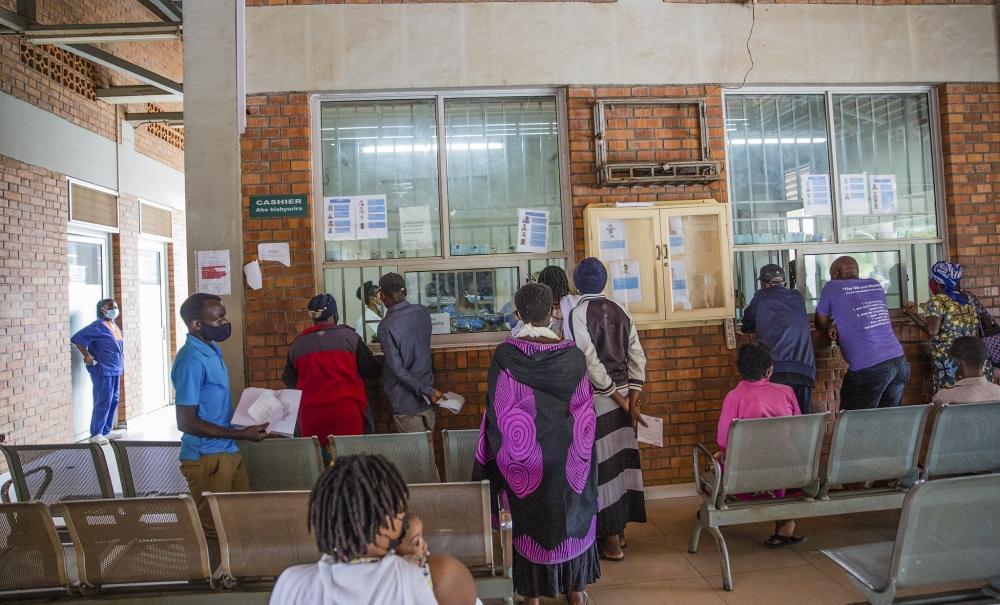Africa-Press – Rwanda. Rwanda is exploring the creation of a special insurance scheme to cover unpaid hospital bills for vulnerable patients, following a sharp rise in medical defaults that reached Rwf1.7 billion by June 2023.
The proposal, still under review by the Ministry of Health, was revealed during a parliamentary session on July 8, where officials acknowledged the growing financial strain on public hospitals caused by patients unable to pay for emergency treatment.
The idea was noted by Zachee Iyakaremye, the Permanent Secretary at the Ministry of Health, on July 8, as officials from Muhima District Hospital appeared before the Public Accounts Committee (PAC) in parliament over concerns highlighted in the report by the Auditor General of State Finances for the year ended June 30, 2024.
The report, which covered 31 public hospitals, highlighted that 19 of them carried over unpaid medical bills related to needy patients. Seven hospitals wrote off debts totalling Rwf929 million from their books. These losses, the report noted, deprived medical facilities of essential resources required for their day-to-day operations.
The data shows a sharp increase in unpaid medical bills from Rwf608 million in 2019 to over Rwf1.1 billion in 2021, and Rwf1.7 billion in 2023.
“We recommended Ministry of Health to develop guidelines on identification of social cases/indigent patients and how the related cost for medical services should be covered,” the Auditor General advised.
Iyakaremye acknowledged the financial pressure on public hospitals and said that the ministry is considering having a long-term solution through insurance.
“We initially proposed to have a dedicated fund to settle these bills, but after further analysis, it became clear that such a fund would not sustainably address the issue and might even create new problems,” he said.
“We are now considering an insurance mechanism, either taken by the government or the hospitals, so that in cases involving such patients, insurance would step in. This would help protect hospitals from incurring repeated losses,” he added.
Technical teams in the ministry are currently studying how similar schemes operate in other countries, with a view to linking the model to existing insurance frameworks in Rwanda, according to Iyakaremye.
“The scheme has not yet been piloted, but we are working towards a more sustainable approach,” he said.
At Muhima District Hospital, where unpaid bills rose from Rwf194 million to Rwf201 million in just one year, the hospital’s Director General, Dr Steven Mugisha, shed light on the problem.
“Many patients arrive in emergencies, and we treat them immediately. But later, they disclose that they are unable to settle the bills. In such cases, we sign payment agreements with them and collect contact details for follow-up,” he said.
However, he noted that recovery efforts often face major obstacles.
“Some patients give false information, while others are honest but simply lack the means. We have reported these cases to the City of Kigali and the Ministry of Health. In some instances, we have been advised to reach out to districts based on the patient’s address.”
Mugisha added that among all the districts contacted, only Huye responded, though they claimed not to know the whereabouts of the patients in question.
“The rest didn’t reply at all. Meanwhile, the problem keeps growing, affecting other hospital operations.”
Martine Urujeni, the Vice Mayor in Charge of Socio-Economic Affairs in the City of Kigali, acknowledged the issue, noting that identification challenges remain a key hurdle.
“Those who are officially categorised as poor are supported through the city’s social programmes,” she explained.
“We also support people referred from police stations, mental health facilities, and pre-rehabilitation centres. But the real difficulty comes when patients are not properly identified or documented.”
For More News And Analysis About Rwanda Follow Africa-Press






